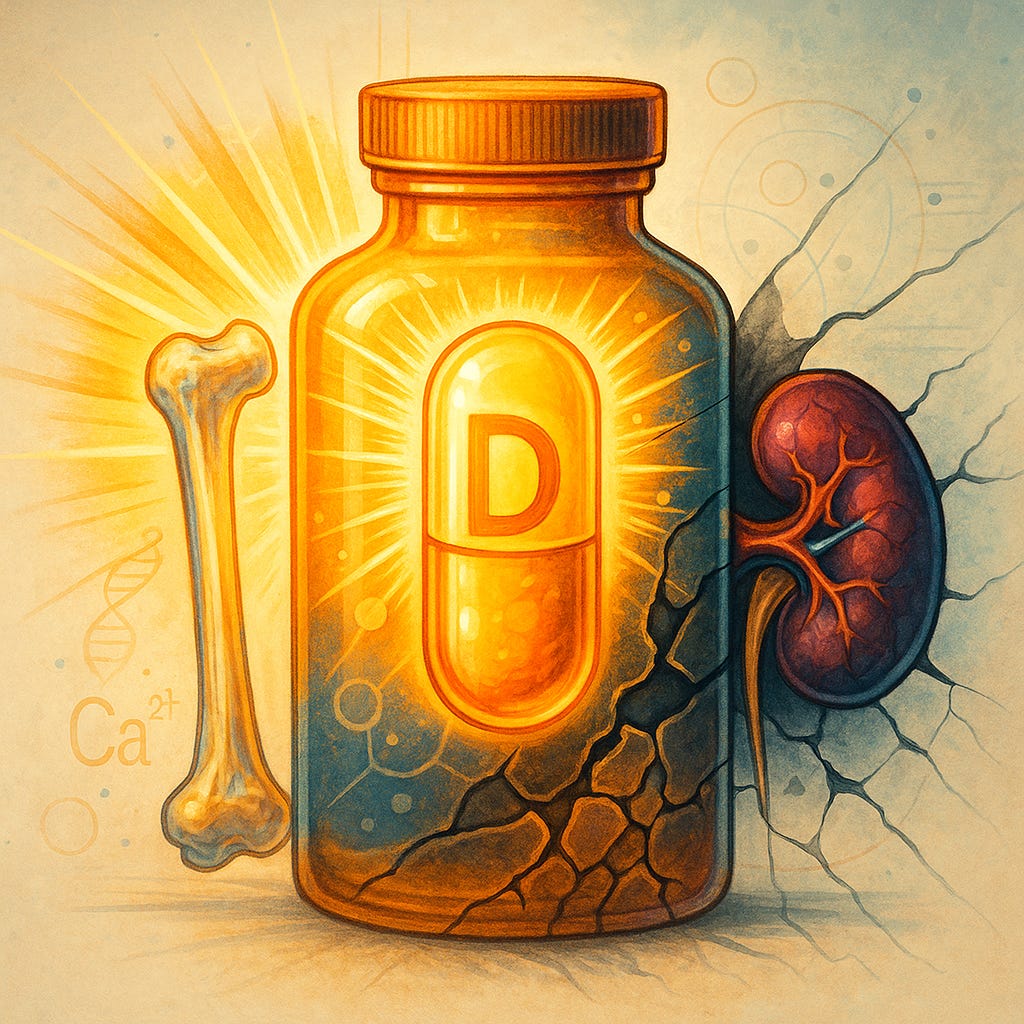Vitamin D overdose risks from unsupervised supplements
Spanish health officials warn of rising cases of vitamin D toxicity linked to online products and self-medication
Vitamin D plays an important role in bone strength and overall health, but recent hospitalizations in Spain highlight the dangers of taking supplements without medical supervision. A defective batch of vitamin D products purchased online caused acute toxicity in several otherwise healthy individuals, drawing attention to the risks of inappropriate use.
S…
Keep reading with a 7-day free trial
Subscribe to Just Healthcare to keep reading this post and get 7 days of free access to the full post archives.


